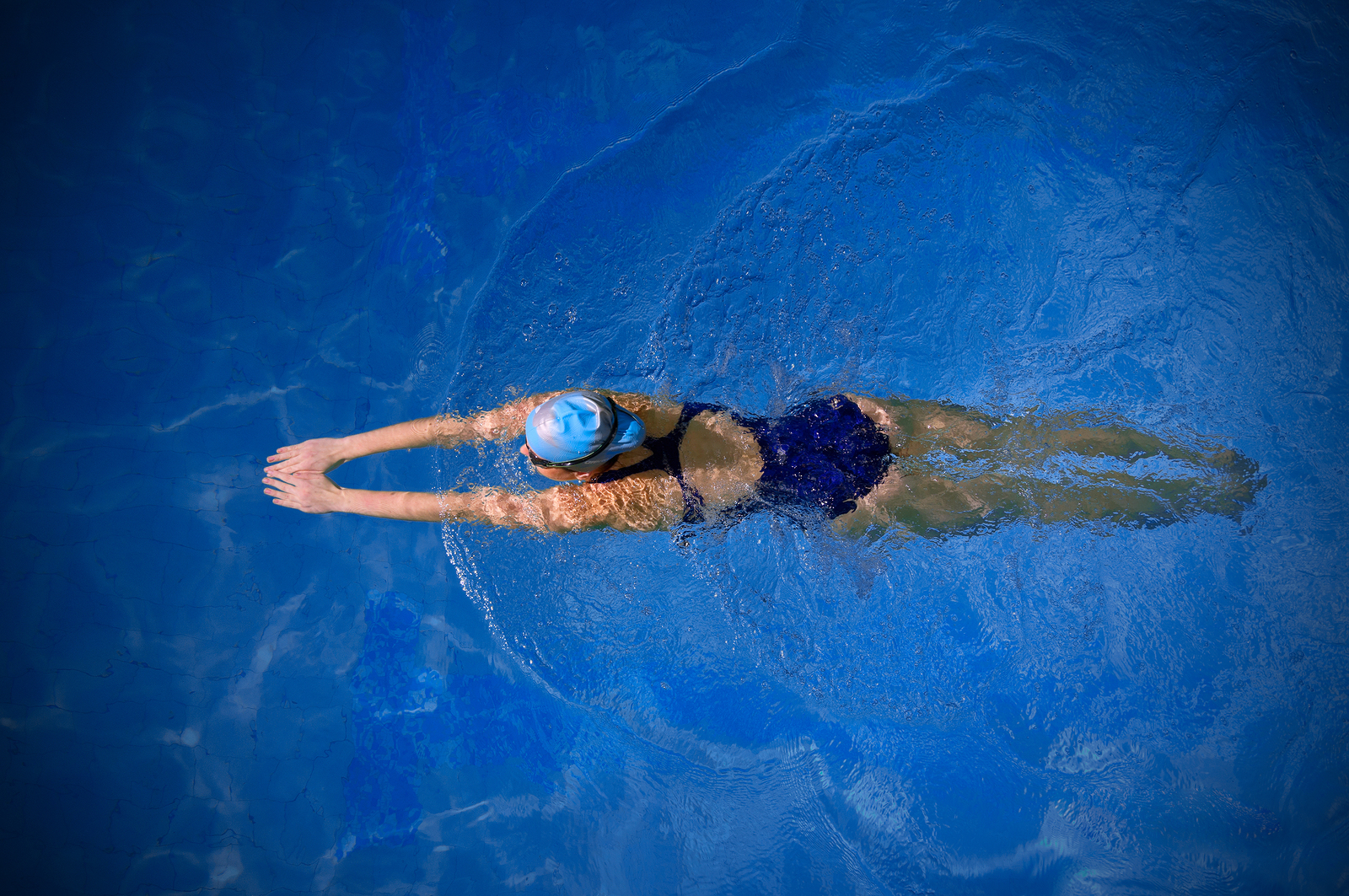
This summer get out there and SWIM. Not only is it refreshing on hot summer days, it also has many health benefits that working out on land can’t offer.
1. RESISTANCE
Water is denser than air so every time you move in the water your body is working against resistance. This is similar to using weights only the waves make movements more variable. This variability is the stimulus that tells your body to engage its core muscles to maintain your posture so you can stay afloat. By constantly challenging your core with every movement you make, your body will improve its stability.
Swimming also uses virtually every muscle in the body, so it makes it easy to tone. If you are kicking for example, you are using your abdominals, glutes, hamstrings and all the muscles in your back to stay afloat and propel yourself forward. When you use your arms (ex. pulling in front crawl) you work the pecs, lats and rotator cuff. The faster you swim the more resistance you encounter and the harder your muscles work, therefore the more calories you burn. Swimming at a moderate pace burns around 500 calories per hour!!
2. BUOYANCY
The density of water also increases your buoyancy when swimming, which makes you feel like you are much lighter than you actually are. Feeling like you have less body weight translates to less impact on your joints, as you avoid the normal ground reaction forces encountered with running, jumping or sports like soccer and basketball. This makes swimming a good alternative for people with arthritis and low back pain.
3. FLEXIBILITY
When performing strokes like front crawl, back crawl or breaststroke your muscles reach their limits of range of motion as you extend your limbs. By continuously reaching the end of a muscle’s available range of motion, the muscle will accommodate to this needed range and stretching occurs. This repetition also helps improve muscle endurance, which in turn improves muscle strength.
4. CARDIOVASCULAR SYSTEM & LUNG CAPACITY
Swimming is one of the best means of challenging the cardiovascular system. It improves the strength of the heart and its ability to quickly and efficiently pump blood throughout the body. This efficiency will increase your resting metabolic rate, lower blood pressure, improve cholesterol levels, and improve tissue oxygenation. Being in water also improves lung function because air intake is limited, both in frequency and volume. Because of this, you learn how to effectively breathe with your movement, increasing lung capacity and oxygen intake with each breath.
Article provided by Registered Physiotherapist, Samantha Costabile. Appointments with Samantha can be made at the Athlete's Care Hamilton location.














